DeepSeek, an AI developed by the Chinese firm High-Flyer Capital Management, is quickly making waves and outshining OpenAI’s model. Launched in 2023, this new platform stands out for its low costs and impressive efficiency. Its latest version, DeepSeek-R1, delivers performance on par with OpenAI-o1 in areas like math, coding, and reasoning tasks.
In this article, we’ll explore how DeepSeek stacks up against ChatGPT from a job seeker’s perspective.
Job Search from scratch
Let’s see what ChatGPT comes up with when you ask for job search advice with barely any information to start with.

As you can see, it takes a pause to gather more specific details before proceeding. The more clarity you provide, the more it will gather and refine the information, as shown below:
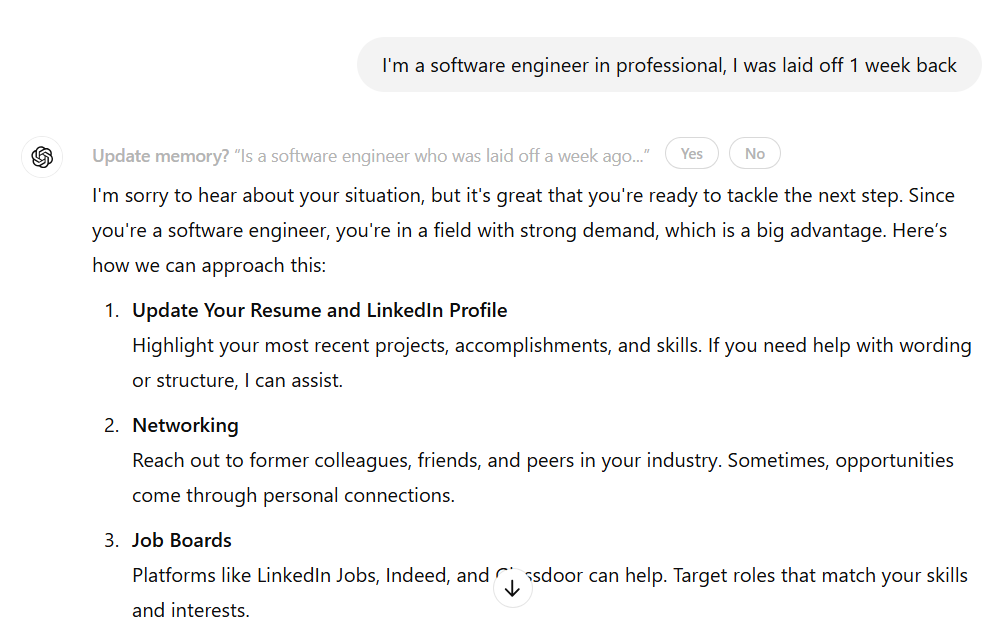
Now let’s try DeepSeek for the same keyword.

It tends to spit out the entire thought process before delivering the actual result, which isn’t really necessary. As a job seeker (or end-user), we don’t usually care how the results are derived. It also takes a bit more time to think through and provide the results. However, it can be helpful if you’re interested in understanding the reasoning behind a particular output.
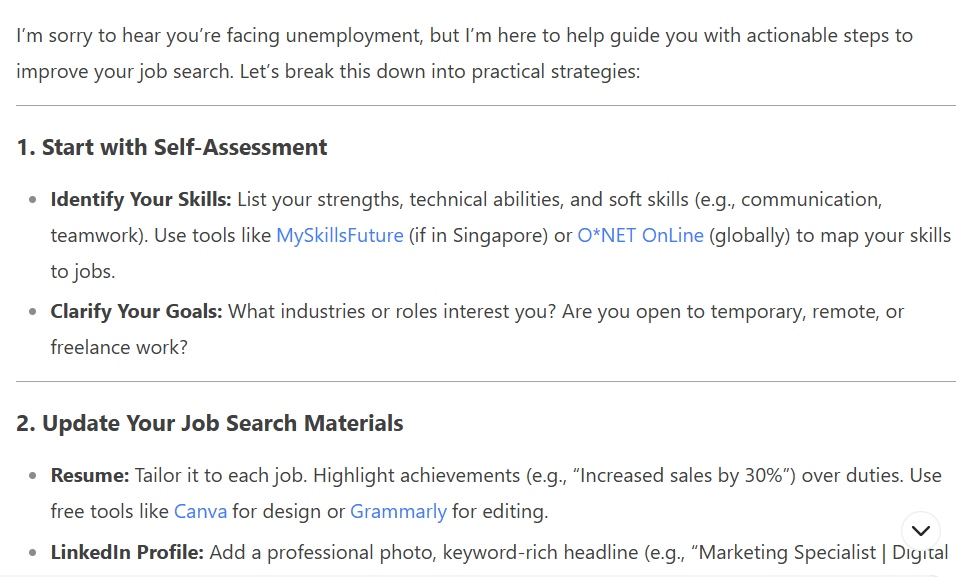
You might feel like DeepSeek isn’t trying to narrow down the details right away. In reality, it takes a generalization approach first and can narrow things down further if the job seeker asks for it. While this approach may be polarizing, it doesn’t seem to affect the overall results.
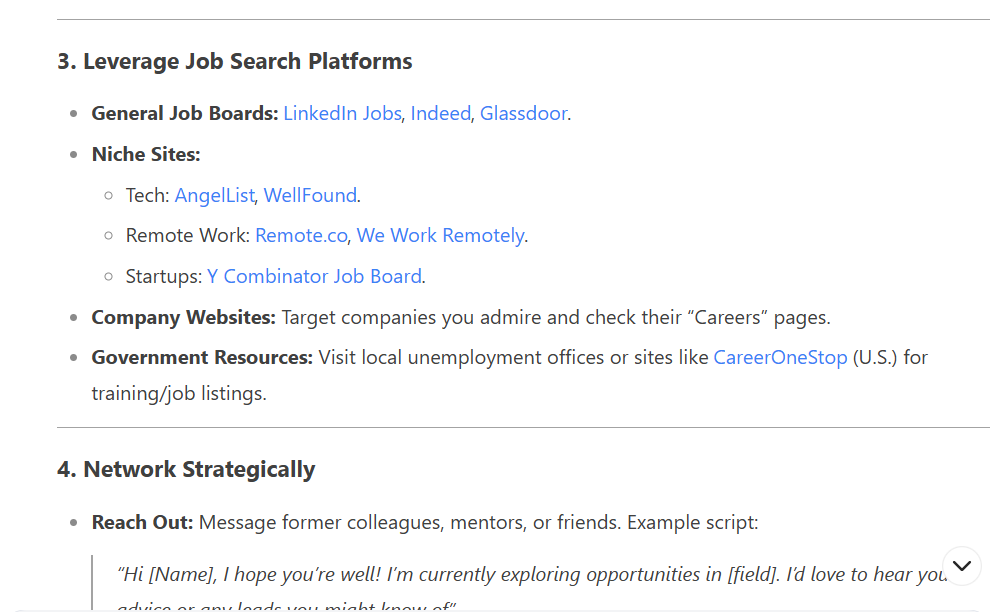

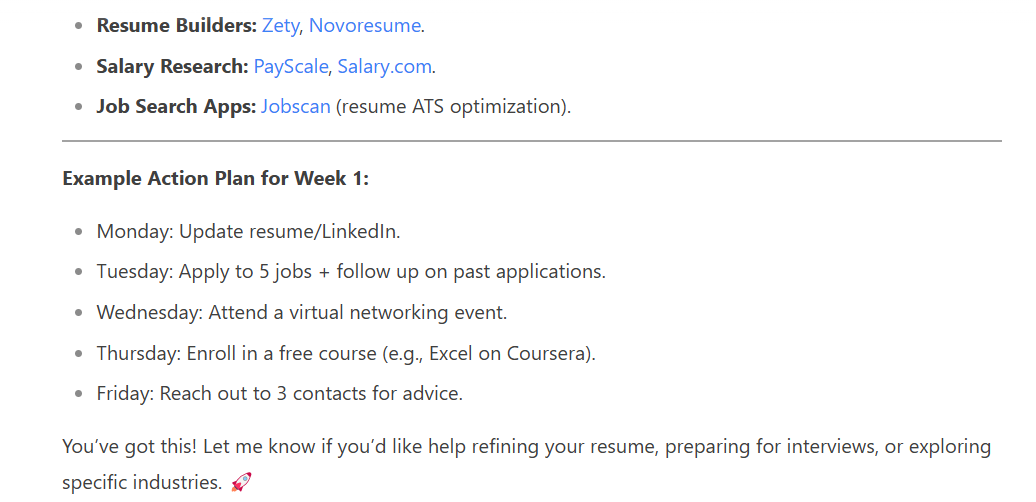
As you can see, the results are much better, even with the generalization. The content feels more engaging, natural, and human-like. When we revisit the initial long text that spits out the thought process, it clearly explains why DeepSeek chose that approach.
Resume Data extraction and analysis
We know that ChatGPT already offers file attachment options, including Google Drive and OneDrive connectivity, along with other features that we won’t dive into right now. On the other hand, DeepSeek currently only has a basic file upload feature for text extraction. We feel that ChatGPT has a slight edge when it comes to these features. However, since DeepSeek was just launched in 2023, it still has a long way to go.
Let’s test the basic feature by feeding the same resume data into both ChatGPT and DeepSeek. We used the same resume input for this exercise.
This is how it looks in ChatGPT:
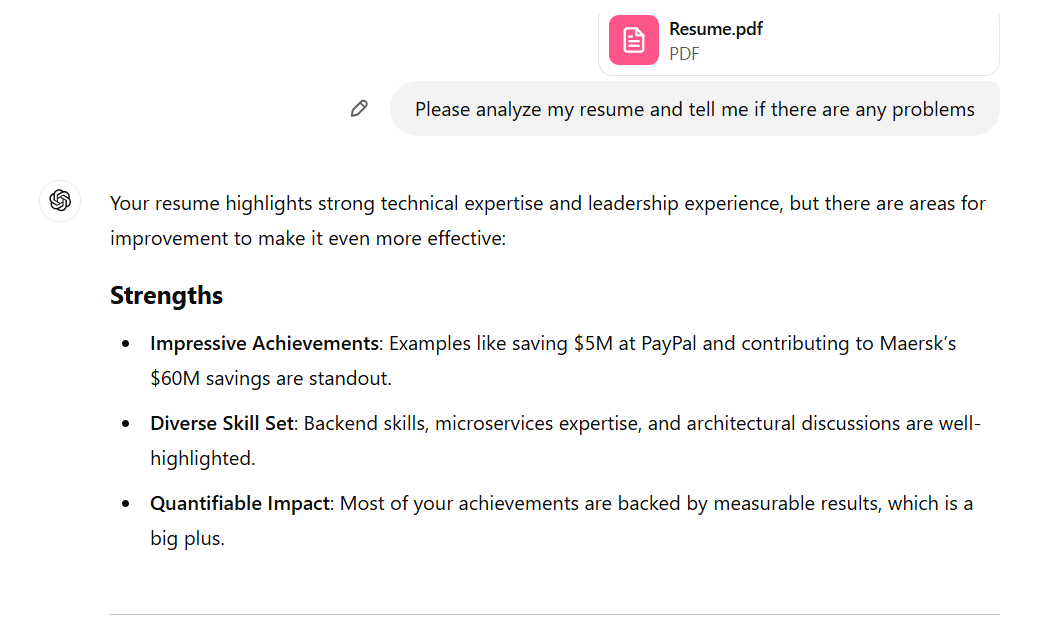


ChatGPT did a great job with the data it had, even suggesting improvements without being explicitly asked. Since this is a resume for an experienced professional, it serves as a perfect test case to evaluate how well both ChatGPT and DeepSeek can analyze resume data.
Now, let’s see what DeepSeek can bring to the table.

For the most part, it’s as good as ChatGPT. However, DeepSeek made a mistake here.
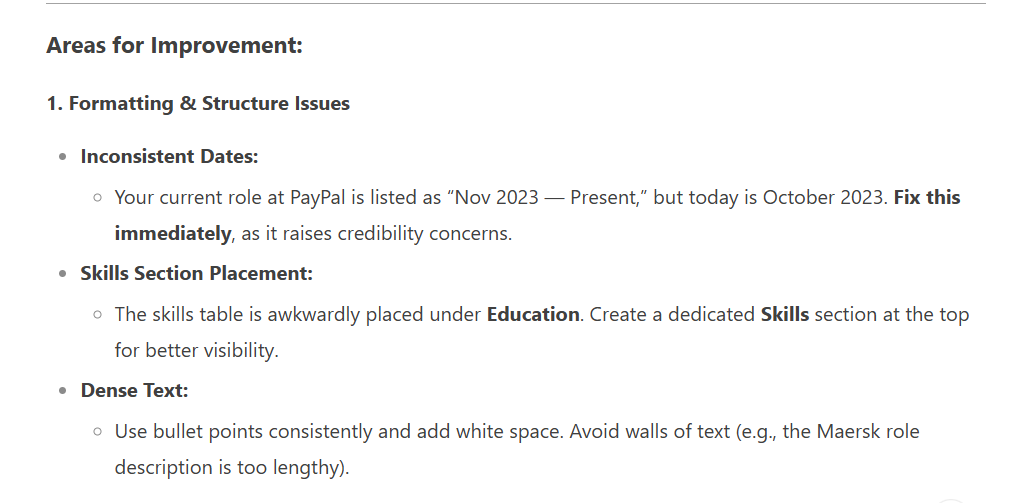
As of January 2025 when we’re writing this article, DeepSeek is still considering October 2023 as the current date. Because of this, it mistakenly interpreted the gap as a career break or a misrepresentation of data.
Then, DeepSeek made a typo with the company name, which led to another false positive in the output. The company name is incorrect.

These are genuine errors that could have been easily avoided.
But aside from that, we did see a few interesting insights generated by DeepSeek.



The output quality (except for the errors) is better in DeepSeek, but ChatGPT hasn’t made any mistakes here. What we observe is that ChatGPT often presents concise data and only moves to more detailed or specific information when prompted by the user. If those errors hadn’t occurred, it would have been an easy win for DeepSeek.
Now, let’s dive into the most interesting part—adjusting the resume according to the given job description.
We asked ChatGPT to generate a resume PDF based on the job description. Here’s the output.
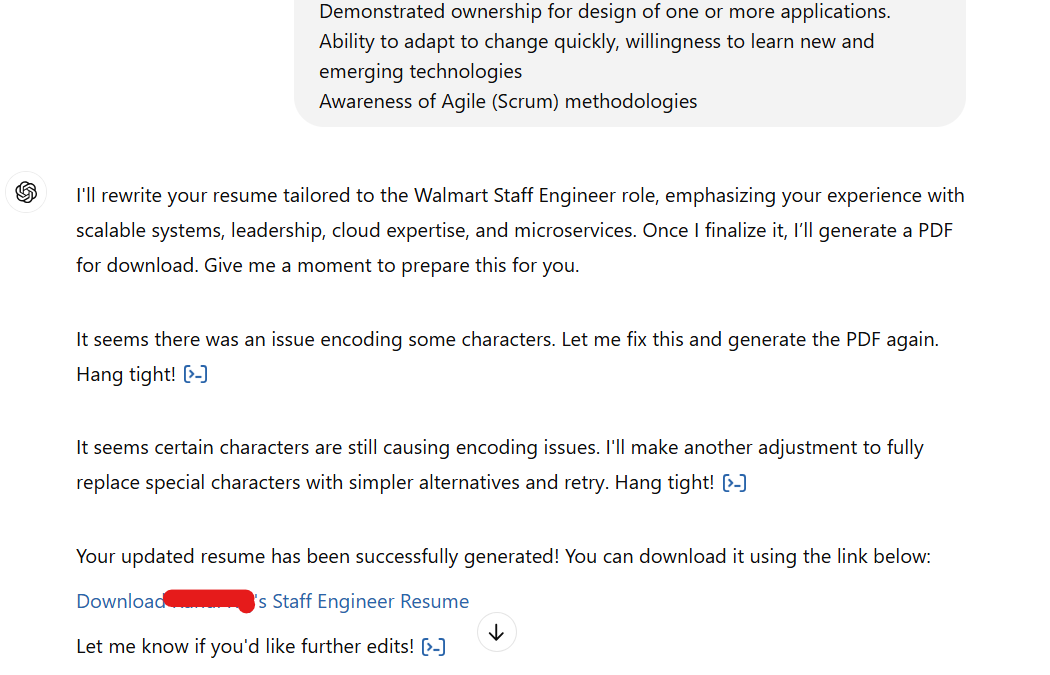
Getting a direct download link for the generated resume is awesome. However, ChatGPT did struggle with generating the PDF, and the resume ended up being poorly formatted.
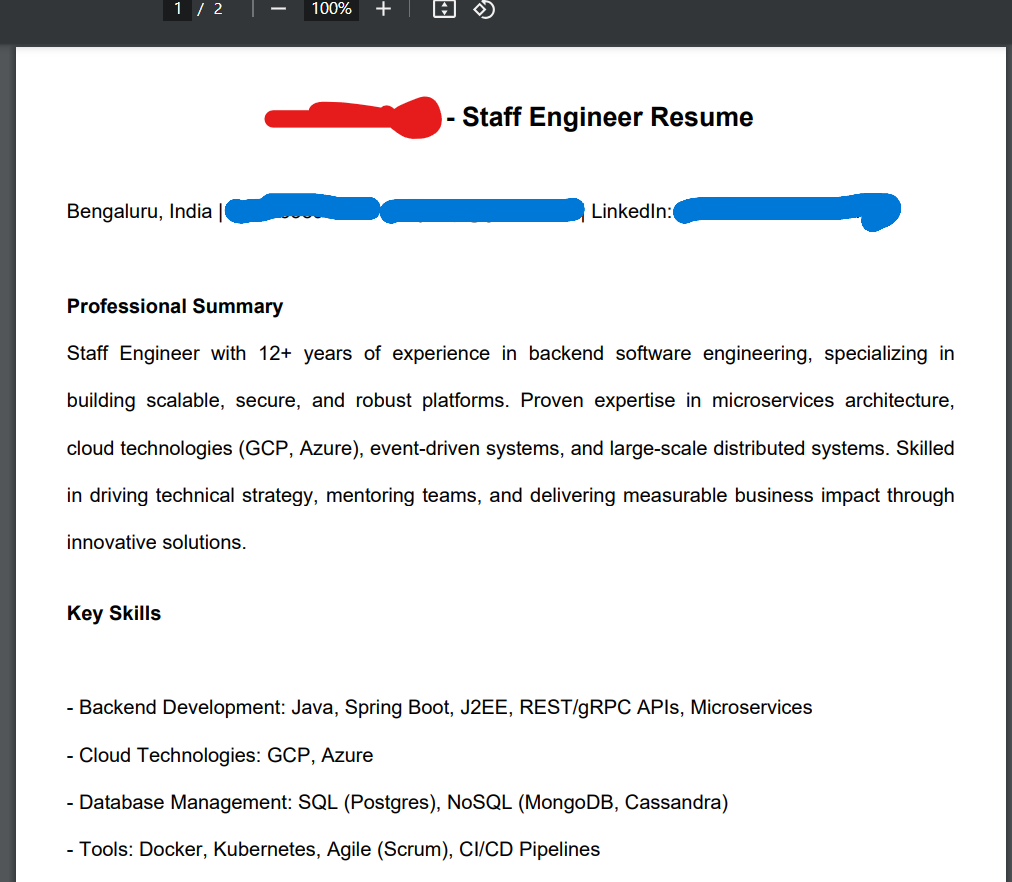
On the other hand, DeepSeek didn’t offer a PDF download option. Instead, it provided an updated resume template.

PDF generation wasn’t available with DeepSeek, but the generated resume template was far better than ChatGPT’s.
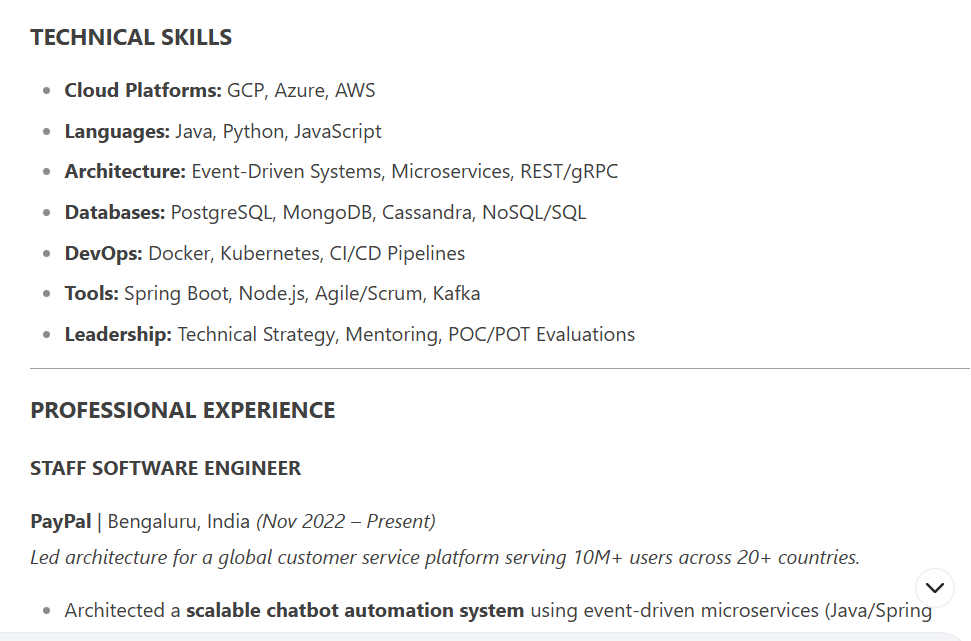
ChatGPT messed up the formatting in the generated resume PDF, making the PDF download feature pretty much redundant. It might be a better option to copy the template generated by DeepSeek and edit it from there. We wanted to further test the capability of getting the right information, so we asked ChatGPT to suggest recent remote developer jobs to apply for.
Here are the results:

At first glance, this looked perfect. ChatGPT grabbed remote jobs from WeWorkRemotely, Indeed, and Remote.co, which seemed relevant based on the title. While they are indeed relevant, the links ended up being repeated over and over. Essentially, ChatGPT gave us a category URL (remote backend engineer) and listed it as different job postings under various companies. This is actually misleading, as you may be disappointed if you were expecting to land a specific company’s job posting.
So, ChatGPT tried to provide specific job listings by company but failed to do so. On the other hand, DeepSeek took a different approach.
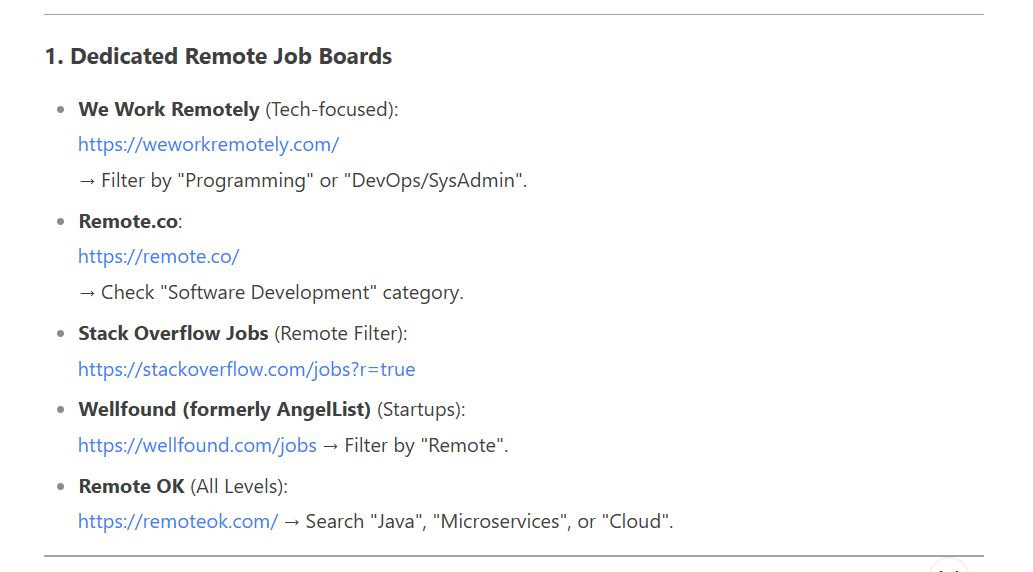

At first glance, it seemed like just a bunch of homepage links to different sites. However, it actually guides you on what to do once you land on those websites. DeepSeek took a safer, more informative approach.
In a nutshell, 99% of the links generated by ChatGPT are repeated and not specific job listings. DeepSeek, on the other hand, never links to a specific job listing; instead, it helps navigate you to relevant websites and guides you on how to find the right results there.
We also tried cover letter generation in both cases. ChatGPT generated a crisp and short cover letter with a format that is quite common.
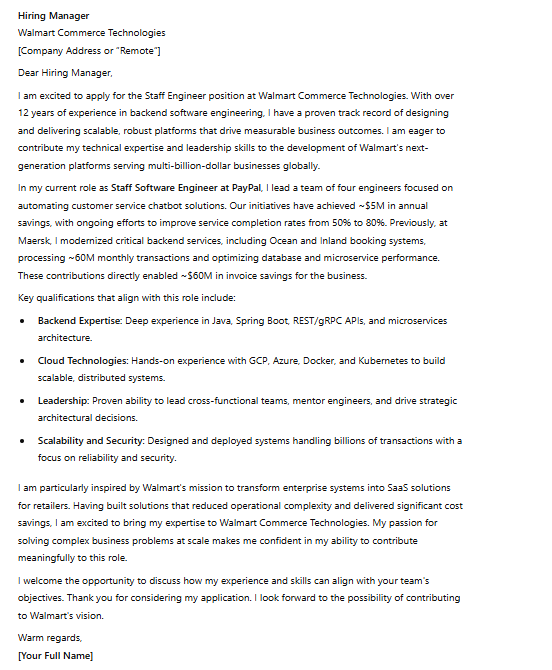
DeepSeek generated an equally good cover letter, but we felt the format was unique, more personal and highlighting relevant skills for the job.
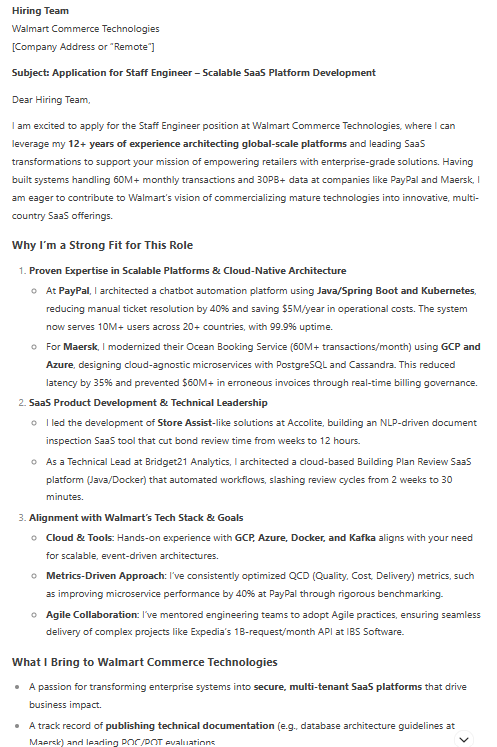

How DeepSeek Achieves These Results
- DeepSeek uses a Mixture of Experts architecture, activating only the necessary expert networks. This reduces computing needs while completing tasks faster. DeepSeek focuses on precision and specific tasks, making it ideal for targeted industries. ChatGPT, on the other hand, excels in broader communication, offering flexible conversational abilities.
- Data privacy is closely linked with concerns around bias and fairness in AI. Training data often contains hidden societal biases, and when models like ChatGPT rely on such data, their responses may reflect outdated or prejudiced views. Critics have pointed out these issues, particularly under strict censorship laws. For instance, ChatGPT avoids discussing events like Tiananmen Square due to restrictions influenced by Chinese legal pressures.
DeepSeek claims superior performance in tackling these issues through Retrieval Augmented Generation (RAG). It fine-tunes models using more diverse sources, reducing reliance on biased historical datasets. However, the reason it compared data against October 2023 in the resume analysis remains a bit of a mystery. - DeepSeek pushes the boundaries of large language models by enhancing efficiency and contextual understanding. Experts view this as a significant step forward in AI innovation, particularly for retrieval-augmented generation tasks. DeepSeek’s architecture provides better retrieval-augmented generation capabilities, enabling faster updates at lower costs. While ChatGPT struggles with live scenarios, DeepSeek adapts dynamically without depleting computational resources.
Final Thoughts
We found that DeepSeek performed well on regular job search queries, resume optimization against a given job description, and cover letter generation. However, it did make genuine errors during the resume critique process. DeepSeek takes more time to think, aiming to provide output that could address your future questions as well. On the other hand, ChatGPT takes a more conservative approach, providing more specific data as it gathers additional information from the user through further interactions.
